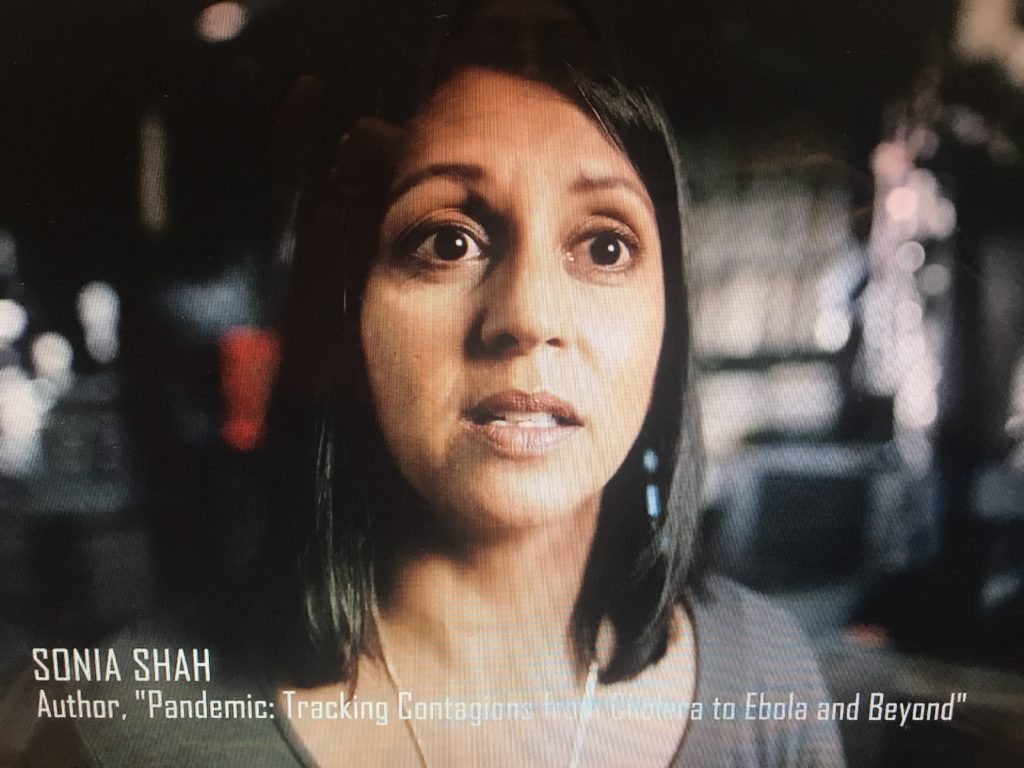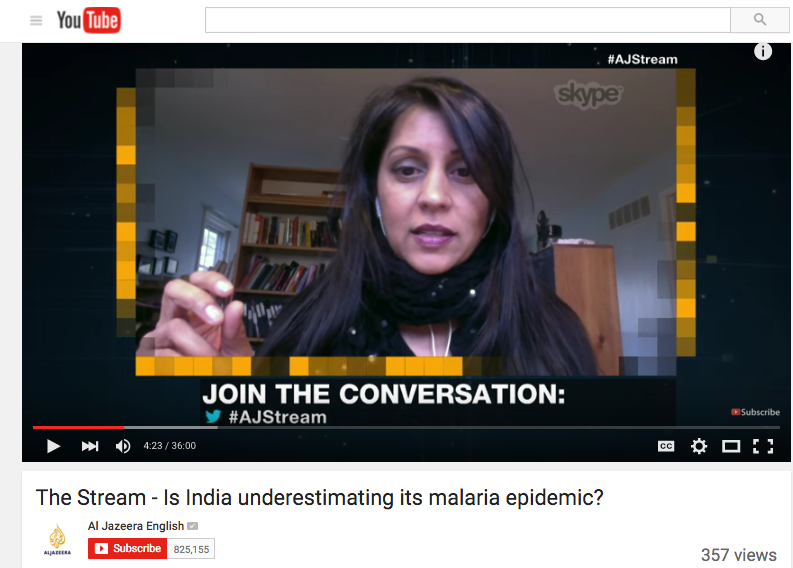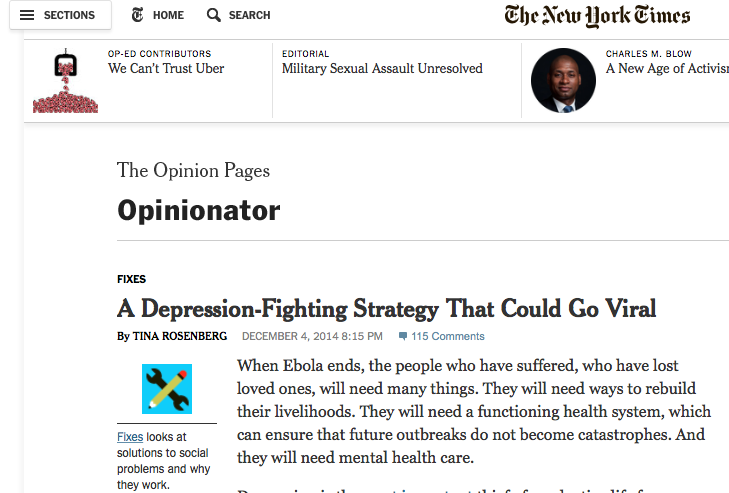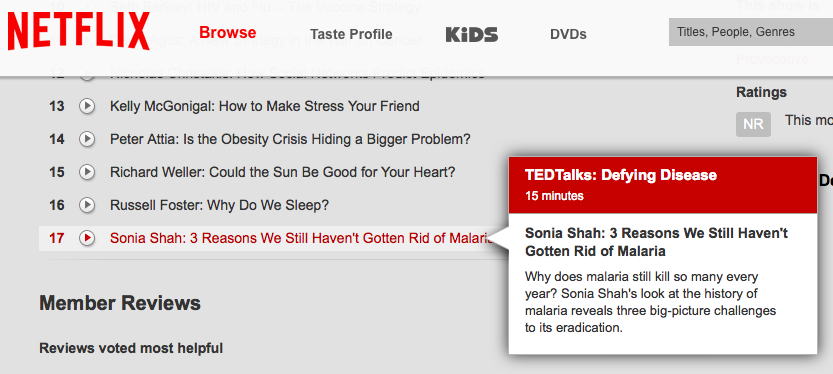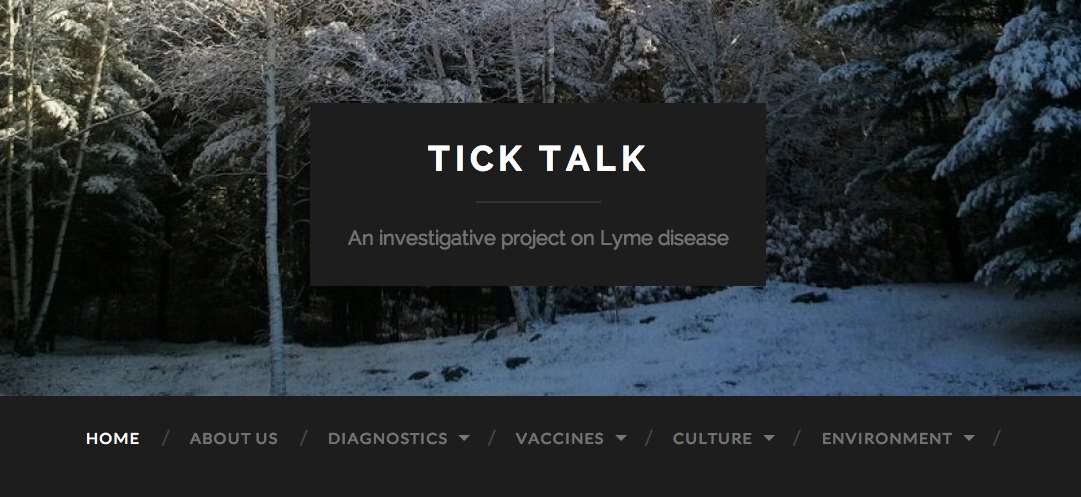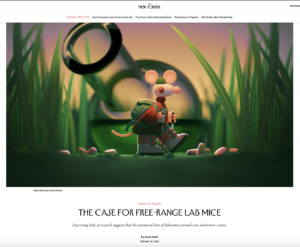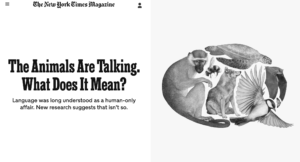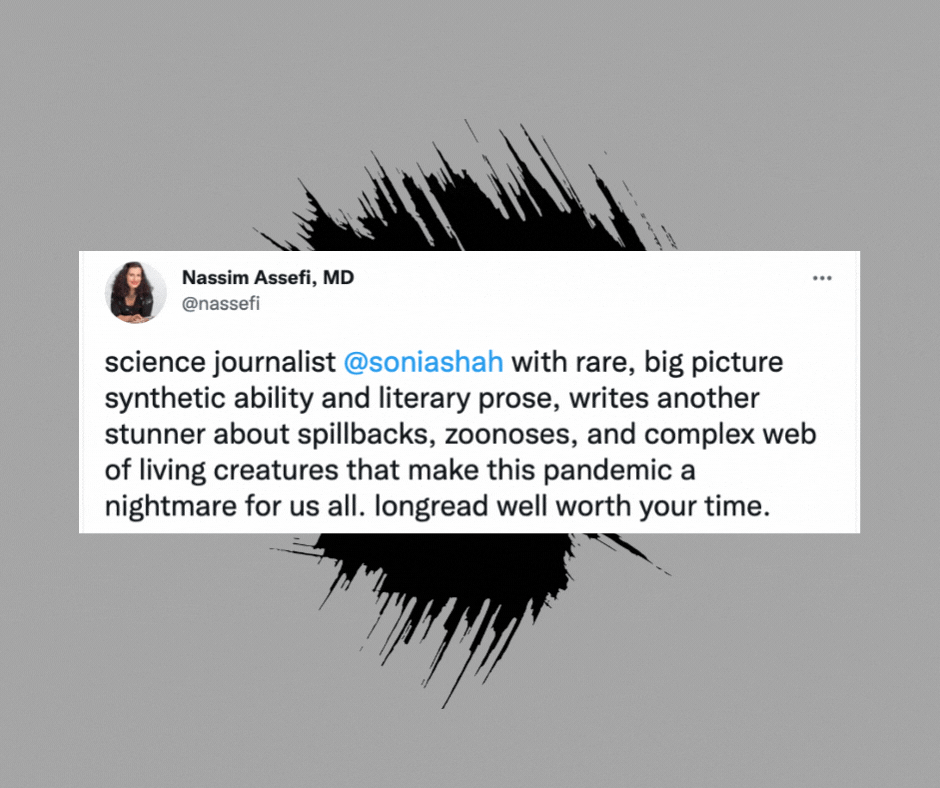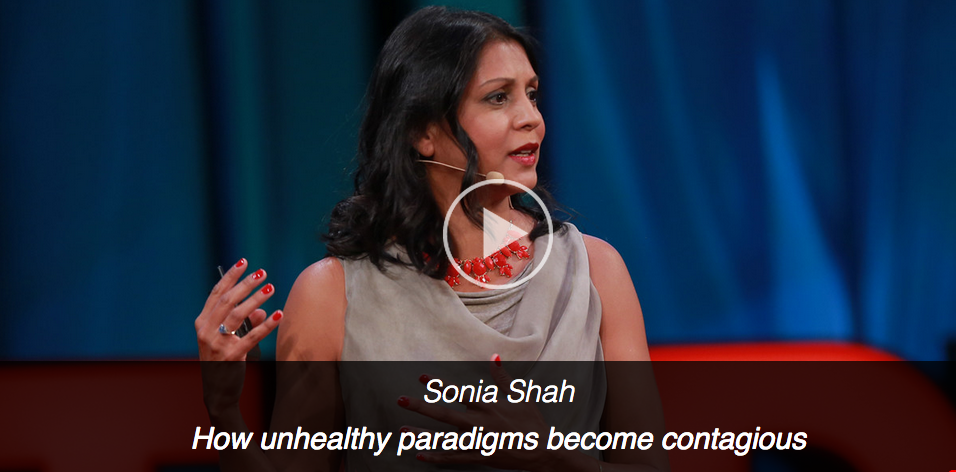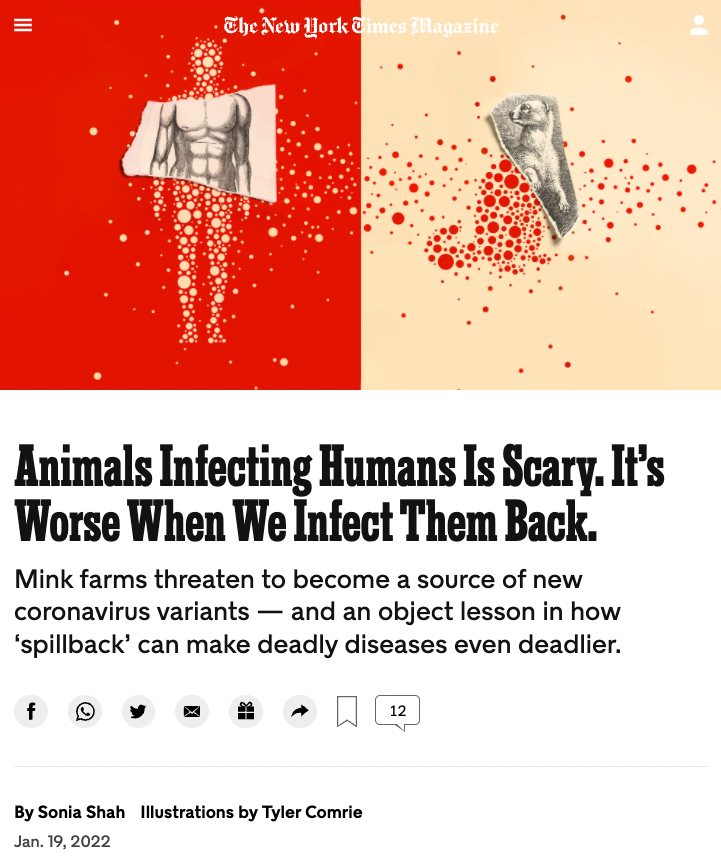
READ: My story on Covid-19 in animals in the New York Times magazine
WATCH: A clip of me talking pandemics on HBO’s Last Week Tonight with John Oliver
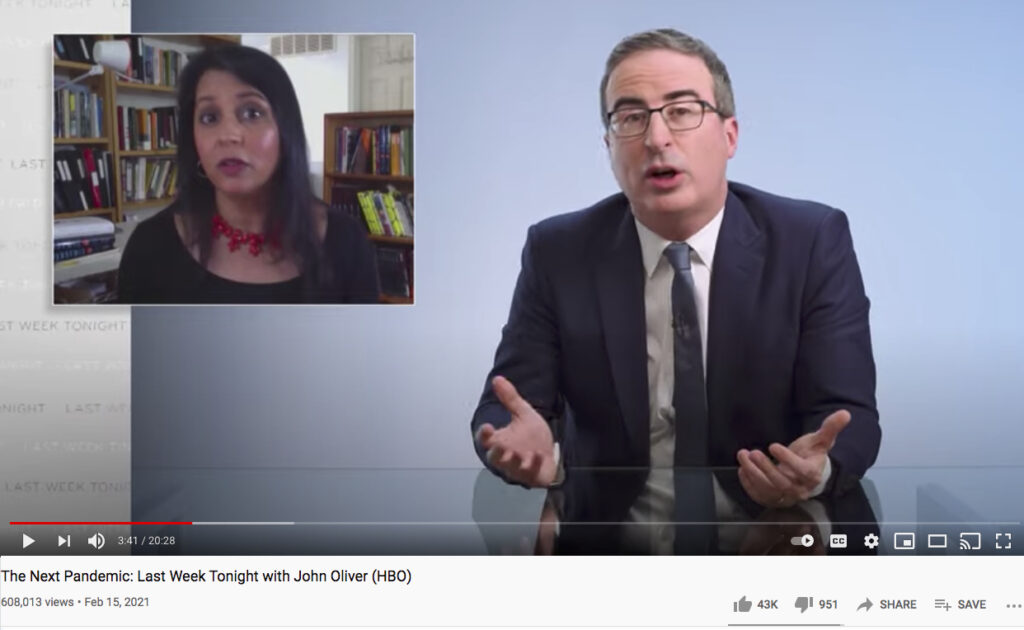
WATCH: My interview with Amy Goodman on Democracy Now!, “It’s time to tell a new story about coronavirus–our lives depend on it.”
LISTEN: My interview on the Nicole Sandler Show, “Life and Covid Times with Sonia Shah“
LISTEN: My interview on “Letters and Politics” on KPFA, “The history of development and contagious disease“
WATCH: My interview on Rising Up with Sonali, “Toward a new understanding of disease and infections” on KPFK
READ: My cover story in The Nation, “It’s time to tell a new story about coronavirus–our lives depend on it.”
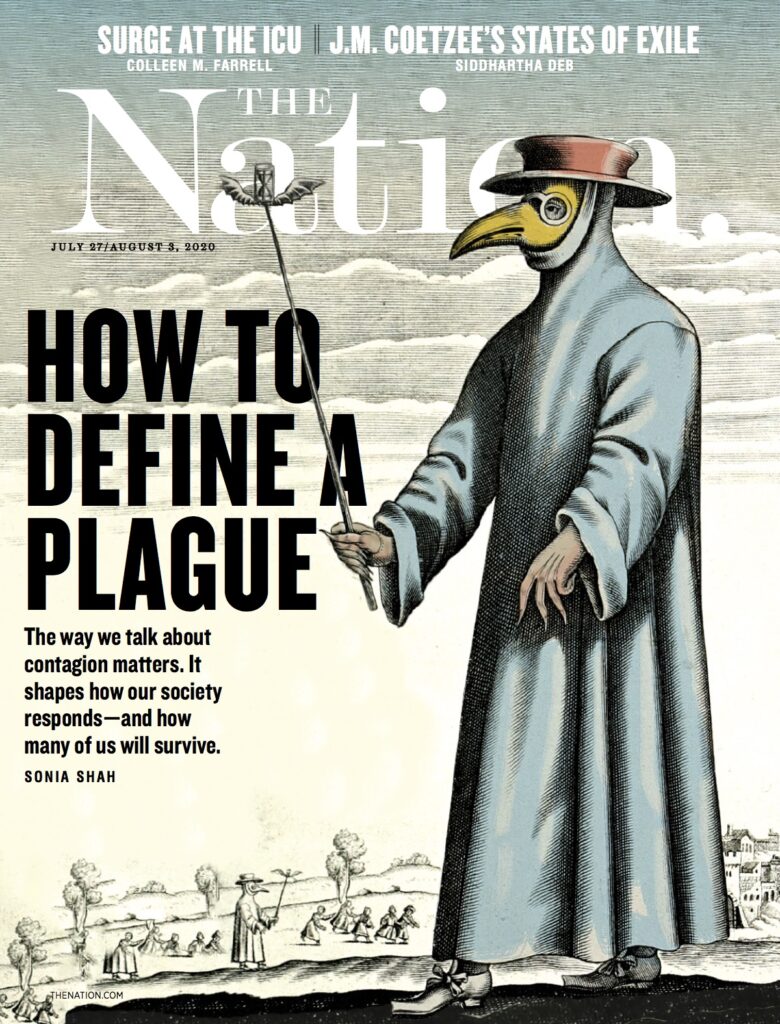
WATCH: My interview with Vox, featured in “How humans are making pandemics more likely“
WATCH: My conversation about pandemics, past and present, on CNN with Fareed Zakaria
WATCH: My Pulitzer Center on Crisis Reporting Webinar on Migrations and Contagions
WATCH: My address to the German Green Party Council on environmental disruption and pandemics (starts at 3:14)
READ: My article, “Mass Consumption Is What Ails Us,” Foreign Affairs
LISTEN: My interview with Marco Werman on PRI’s The World, “What does it mean when people say we’re due for a pandemic?”
WATCH: My TED Connects talk on how to make pandemics like COVID-19 optional, not inevitable, April 1, 2020

WATCH: My interview with Senator Bernie Sanders on his coronavirus roundtable livestream, March 30, 2020
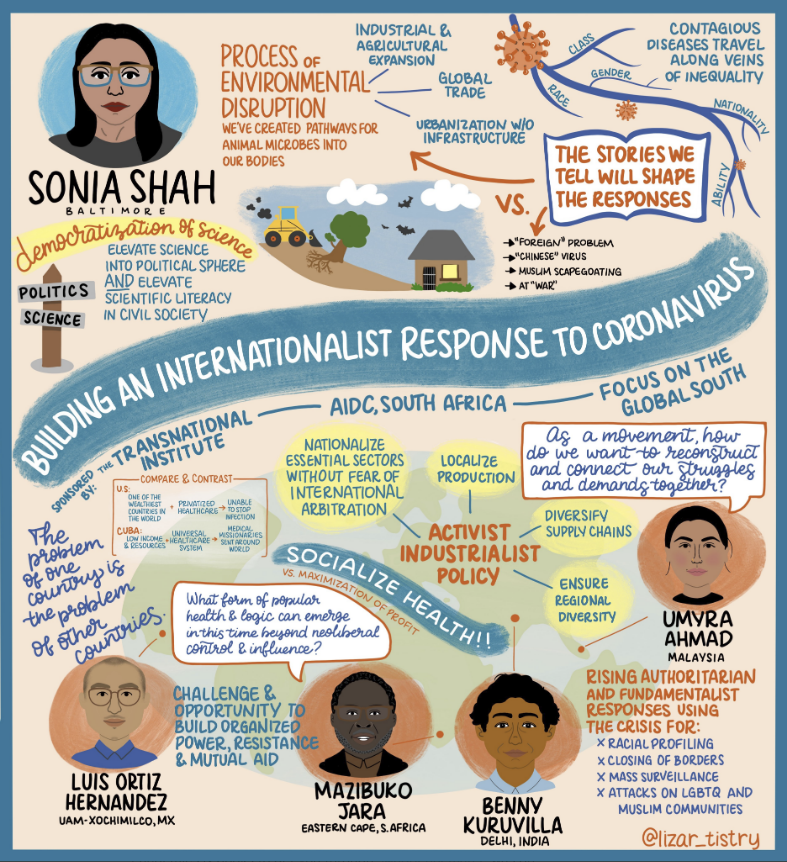
WATCH: My conversation with international activists on Transnational Institute’s webinar, “Building an Internationalist Response to COVID19“
READ: My Q&A with Sigal Samuel, “Our environmental practices make pandemics like the coronavirus more likely,” Vox, March 31, 2020
READ: My article, “How Trump Is Going to Get Away with a Pandemic,” The Nation, March 31, 2020
LISTEN: My interview for “When We Talk About Animals” podcast, on how animal microbes become human pandemics
WATCH: My interview with Marc Steiner, “Covid-19, Ebola, and SARS were all unleashed by humans,” Real News Network
WATCH: My interview, “Pandemics are entirely preventable,” on NBC LX
LISTEN: My interview, “When viruses become pandemics,” on the Le Monde Diplomatique podcast
READ: My contribution to “Coronavirus Will Change the World Permanently. Here’s How,” POLITICO magazine
WATCH: My interview, “How the climate crisis is making the spread of infectious diseases like coronavirus more common,” Democracy Now!
READ: My story, “Think exotic animals are to blame for the coronavirus? Think again.” From The Nation magazine. Reprinted by Le Monde Diplomatique in French, Spanish, and Portuguese.
READ: My article, “The pandemic of xenophobia and scapegoating,” in TIME magazine
READ: My Q&A on the origins of pandemics with the Times of India
LISTEN: my interview on the problem of scapegoating during epidemics with WNYC’s “The Takeaway“
LISTEN: my interview on the What if? podcast (starts at 22:06)
READ: my comments on where novel pathogens come from, on Global Health Now’s “Coronavirus Expert Reality Check“
READ: The Coronavirus in Context: a Q&A with Sonia Shah, author of PANDEMIC, from Direct Relief

